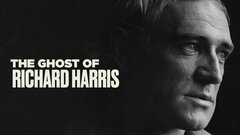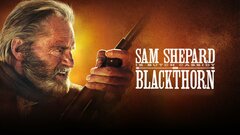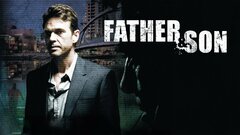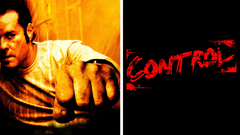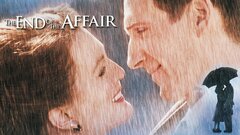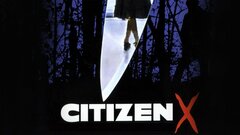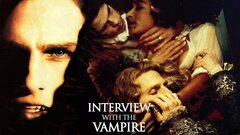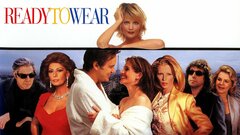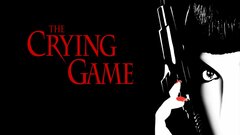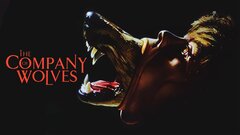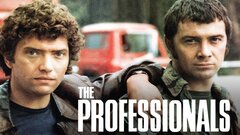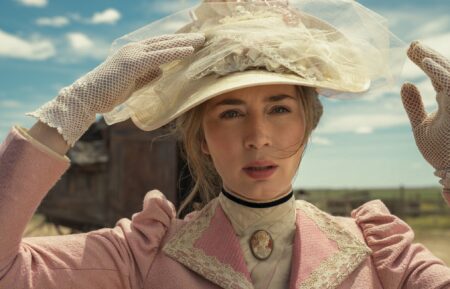Perhaps one of the most respected and established actors to emerge from Ireland, Stephen Rea spent years performing on stage and on screen before staking his claim in the United States with an Oscar-nominated performance in "The Crying Game" (1992). Directed by long-time collaborator, Neil Jordan, "The Crying Game" both introduced him to a wider, international audience while reaffirming to fellow countrymen his status as an actor of considerable depth.
Prior to his breakout performance, Rea spent two decades working on stage, touring his native Ireland in small theatres until he worked his way up to bigger stages in Dublin and eventually London, while performing in films like "Angel" (1982) and "Life is Sweet" (1991). He later formed his own stage company, Field Day, with acclaimed playwright Brian Friel, which allowed him to delve into more politically-themed material that helped attract attention to the debate concerning The Troubles, North Ireland's long conflict with England.
Never shy about his stance on issues, Rea continued performing in movies and plays with overt political intentions, and even married Dolours Price, a former member of the Irish Republican Army who spent eight years in prison on suspicion of partaking in a terrorist bombing. But it was Rea's nuanced and often sympathetic portrayals of otherwise complex characters that attracted the most attention and endeared him to audiences on both sides of the Atlantic.
Born Oct. 31, 1946 in Belfast, Northern Ireland, Rea grew up in a Protestant blue-collar home where his father was a bus driver and his mother the headmaster's secretary at Belfast High School, which he later attended. Though his desire to act lay distinctly outside his family - he was the only member so creatively inclined - Rea began to perform at an early age, starring as the Wolf in a school production of "Little Red Riding Hood" when he was four years old.
When he was significantly older, Rea attended the Queen's University of Belfast, where he earned a degree in English, then trained at the Abbey Theatre School in Dublin. While consistently performing onstage, he made an inauspicious feature debut with a small role in the long-forgotten Vince Price horror flick, "The Cry of the Banshee" (1970). A few years later, he made a striking impression with an acclaimed performance in playwright Brian Friel's "The Freedom of the City" (1973), an overtly political play about the struggle for Ireland's independence from Britain.
Throughout the 1970s, Rea spent his time traveling his native country performing in contemporary Irish plays while traveling back and forth to London, where he first worked in fringe theatre, then later performed at the Royal Court Theatre. After co-starring in an adaptation of Tom Stoppard's "Professional Foul" (1978), a drama about the adventures of a Cambridge professor visiting Prague to deliver a paper, Rea formed the Field Day Theatre Company in 1980 with Friel. Their first production, Friel's own "Translations," was a landmark event in Irish theatre because of the cultural and political debate it triggered over Ireland's decades-long Troubles.
Meanwhile, he had his first leading role in a feature, playing a saxophone player obsessed with finding a mute girl's murderers in Neil Jordan's directorial debut, "Angels" (1982). He followed up in several small British-made films; among them Richard Eyre's road movie "Loose Connections" (1983), a witty take on Brits abroad, with Rea demonstrating early on the quirky charm that served him well in later roles, as well as his second collaboration with Neil Jordan, "The Company of Wolves" (1985), a murky tale-within-a-tale based on the Gothic horror aspects of Little Red Riding Hood.
Though his work earned critical acclaim, it would take several more years for his film career to hit full stride. In "The Doctor and the Devils" (1985), Rea was a grave robber who worked with a partner (Jonathan Pryce) to provide fresh corpses to a surgeon at a teaching hospital (Timothy Dalton). But when the two fail to supply enough cadavers to the doctor fast enough, they resort to murder to catch up. In 1987, Rea performed in a stage production of "High Society" at The Victoria Palace Theatre in London, before returning to Field Day to play Oscar Wilde in "Saint Oscar" (1989), which was followed by another big-screen venture in Mike Leigh's wry comedy "Life Is Sweet" (1992).
Rea's big breakthrough, however, came with his third Neil Jordan film, "The Crying Game" (1992), a shocking psychological thriller that crossed the Atlantic to become a surprise hit in the United States. He played an IRA kidnapper who falls for the lover (Jaye Davidson) of a man (Forest Whitaker) whose death he indirectly caused, only to discover she is not quite the woman he thought she was. The unveiling scene became one of the most talked about in film history at the time of its release. Rea subtly conveyed his character's mixed feelings and contradictions in a performance that earned him an Oscar nomination as Best Actor.
With a career that had steadily gained him respect in Ireland and England, Rea suddenly found himself in demand in America. After appearing as Lovborg to Fiona Shaw's "Hedda Gabler" (PBS, 1993), Rea enjoyed success on the West End and Broadway stages as one of three political prisoners in "Someone to Watch Over Me" (1993). With his newfound success and higher profile, Rea received numerous offers for roles in U.S.-produced films. He was cast in Martha Coolidge's "Angie" (1994), playing a good-natured Irishman who befriends a very pregnant and unmarried woman (Geena Davis).
Following a turn as a muckraking journalist in the period romance "Princess Caraboo" (1994), Rea made his fourth film with Jordan, playing the vengeful vampire Santiago in "Interview with the Vampire" (1994). Rea finished off the year playing against type as an egocentric superstar photographer who has top fashion editors vying for his services, even as he captures them in compromising situations, in Robert Altman's much-maligned "Ready-to-Wear/Pret-a-Porter" (1994). Rea returned to form playing a relentless Russian detective who spends eight years battling Soviet propaganda and bureaucracy while tracking down a serial killer (Jeffrey DeMunn) guilty of killing 52 women and children in "Citizen X" (HBO, 1995), inspired by the real-life story of Andrei Chikatilo.
A tireless, prolific actor whose life revolved around work and little else, Rea reunited with Jordan to play a key British informant in "Michael Collins" (1996), then earned widespread praise for his interpretation of accused Lindbergh baby kidnapper Bruno Richard Hauptmann in "Crime of the Century" (HBO, 1996). Rea returned to his native Ireland to star in "Trojan Eddie" (1997), portraying a down-on-his-luck ex-con who becomes embroiled in mayhem, then once again reunited with Neil Jordan for the dual role of father of a murderous boy (Eamonn Owens) and the child's grown-up self in the critically acclaimed horror-comedy "The Butcher Boy" (1997).
Following a turn as an IRA gunman who escapes to New York and falls in love with a Guatemalan refugee (Rosana Pastor) in "The Break" (1998), he played the keyboardist for a cult band who engineers a reunion for the aging group in the daffy comedy "Still Crazy" (1998). Rea next offered a terrific turn as a moralistic, fire-and-brimstone preacher in the multigenerational drama "This Is My Father" (1999), followed by his role as a doctor who helps a grieving woman deal with the death of her daughter and the disturbing dreams she's experiencing in Jordan's thriller "In Dreams" (1999).
By the late 1990s, Rea was working as much in the United States as he was back home, though he never wavered in identifying himself as an Irish actor. Rea gave a fine performance as a photographer with a penchant for romancing impressionable young women in the delightful romance "Guinevere" (1999), then earned critical acclaim for his sensitive portrayal of a cuckolded husband in Neil Jordan's World War II love story "The End of the Affair" (1999).
He kicked off the new millennium with a string of projects that included directing and starring in an updated version of the beloved Sean O'Casey play "The Plough and the Stars" at the Gaiety Theater in Dublin. He returned to the big screen in "Catch the Sun" (2000), director John Carney's drama about a suicidal 19-year-old (Cillian Murphy) whose admittance to a psychiatric hospital brings new hope after falling in love with a suicidal girl (Tricia Vessey). Rea then played the conniving Cardinal Richelieu in "The Musketeer" (2001), a middling version - both creatively and financially - of Alexandre Dumas' classic, The Three Musketeers.
In "Snow in August" (2001), Rea played a Jewish refugee from World War II who befriends a Catholic boy (Peter Tambakis) who has witnessed a violent crime. After playing the eccentric boss of a man (James Frain) who becomes increasingly entangled in a bizarre conspiracy in the black comedy "Armadillo" (A&E, 2001), Rea had a supporting role in the thankfully forgotten horror calamity, "Feardotcom" (2002).
Rea next appeared in the emotionally uplifting drama, "Evelyn" (2002), which starred Pierce Brosnan as a single dad trying to reunite his family after the courts takes his children away and put them into orphanages. A supporting role as a doctor in the psychological thriller "The I Inside" (Starz!, 2005) was followed by another reunion with Neil Jordan for their eighth feature, "Breakfast on Pluto" (2005), with Rea playing an obscure nightclub magician in 1970s London who gets involved with a charming transvestite prostitute (Cillian Murphy) who may also be an IRA bomber.
After a supporting role as an inspector who uncovers a horrible government crime in "V for Vendetta" (2006), based on the famed graphic novel, Rea played a Catholic priest who discovers several Satanic occurrences and enlists the help of a professional myth buster (Hilary Swank) in "The Reaping" (2007). In "Stuck" (2008), Rea next played a homeless man hit by a retirement home caregiver (Mena Suvari) in a freak car accident, only to be left in her garage as she waits for him to die, sticking through her front windshield.




